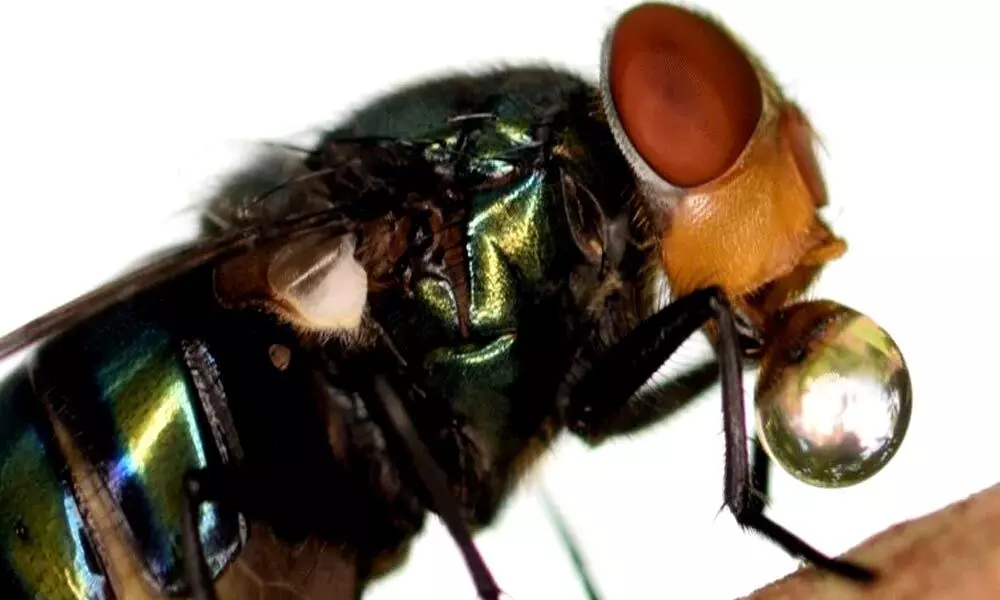If Its Safe To Eat Your Food After A Fly Lands On It

A fly regurgitating digestive juices. (Carlos Ruiz/CC BY-ND)
- It evades your smacking, lands on the sandwich, and then appears to puke on it.
- It may appear disgusting, but the fly may simply be airing out its own digestive fluids or puking on yours.
Consider yourself at a picnic, going to eventually bite into your sandwich. Unexpectedly, you notice a fly heading your way, its complex eyes and antennas closing in on your food. It evades your smacking, lands on the sandwich, and then appears to puke on it.
It may appear disgusting, but the fly may simply be airing out its own digestive fluids or puking on yours.
Because the majority of the over 110,000 known fly species lack teeth, they are unable to chew solid food. Their mouthparts are spongy like a straw. When they land on your food, they must expel digestive juices in order to liquefy it into a partially digested, slurpable soup that they can swallow. In short, some flies are only eating liquids.
Some flies try to reduce the liquid in their previous meals in order to fit more food in their stomachs. They regurgitate food into vomit bubbles to slightly dry it out. They can consume this more concentrated food after some water has evaporated.
Humans do not need to spit and regurgitate in order to obtain nutrients from our food. However, you do produce digestive juice in your saliva, as well as an enzyme called amylase, which predigests some of the bread as you chew.
Amylase converts starch, which you cannot taste, into simple sugars, which you can. That's why bread becomes sweeter as you chew it.
When a fly lands on your sandwich, it's not the only thing it's landed on that day. Flies frequently sit on filthy surfaces, such as a dumpster or decaying food, which is teeming with microbes. Germs can hitch a ride and, if the fly remains in place long enough, jump onto your meal.
Because some of the organisms can cause diseases like cholera and typhoid, this is far more dangerous than their saliva. However, if the fly only stays for a few seconds, the chances of microbes porting are low, and your food is likely safe.
Next Story







